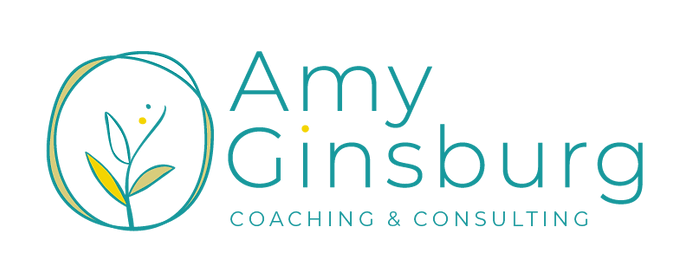Resources
“Amy’s notes give me something tangible – something I can refer back to and proof of the very real progress I feel we are making.”
— Katrina E.

“Amy has a gift…she is kind, honest, and direct, and uses practical tools to coach in a positive way to help us live our best lives! I highly recommend you spend time with her!”
— Anonymous
Below is a mix of resources that speak to me and reflect my coaching. These titles and the ideas contained within often surface in coaching sessions.
The Book of Joy: Lasting Happiness In a Changing World, Dalai Lama, Desmond Tutu, and Douglas Carlton Abrams
I recommend listening to instead of reading this book as it is primarily based on a 7-day conversation between his Holiness the Dalai Lama and Archbishop Tutu as they celebrated the Dalai Lama’s 80th birthday in Dharamsala, India where his Holiness has been in exile since 1959. Interspersed are stories from these two great spiritual leaders, scientific research on joy and happiness, and practical suggestions for daily practice. This is perhaps my favorite book of all time.
Building Blocks of Emotional Intelligence:
12 Leadership Competency Primers, Daniel Goleman and Richard Boyatzis
I first discovered the profession of Life Coaching through my fascination with neuroscience and my desire to understand how the brain drives our behavior. Daniel Goleman’s writings were some of the first to hook me. These little primers identify twelve specific, evidence-based competencies that are the building blocks of emotional and social intelligence for “outstanding performance”. While the title and many of the examples are focused on corporate leadership, the findings are applicable to anyone’s life.
Creative Visualization: Use the Power of Your Imagination to Create What You Want in Your Life, Shakti Gawain
At first glance this short book was a bit airy-fairy for me. Yet I am so glad I read on with an open mind, as it is full of life-changing wisdoms and gems. Included are instructions for using mental imagery and affirmation to produce positive changes in your life.
Designing Your Life, Bill Burnet and Dave Evans
The Designing Your Life (DYL) book captures the curriculum that has been the most popular offering at Stanford University for over 30 years. It takes the basic principles of design and applies them to one’s life. I am a bit of a DYL poster child. I read the book when I was stuck professionally and through the wayfinding exercises and a DYL workshop I decided that career #3 was to become a Life Coach. In addition to my foundational Coach training through an ICF certified program, I am now also a Designing Your Life Certified Coach and often bring the DYL tools into coaching sessions.
The Happiness Hypothesis, Jonathon Haidt
Positive Psychology has seeped into the mainstream; books, podcasts, and workshops about happiness and how we can create more meaningful and fulfilling lives seem to be everywhere. This particular book combines ancient wisdoms with modern science. I like how it is organized with one big idea per chapter. It’s chock-full of juicy information; I felt like I needed to start it again as soon as I had finished it.
Hidden Brain Podcast, broadcast on NPR
In each weekly episode Shankar Vendantam uses science and storytelling to explore different aspects of the human experience. I always learn something new. For me, reading the menu of episodes is like being a kid in a candy store; I don’t know which to choose first.
The Last Word on Power, Tracy Goss
Even before I finished this book I emailed the author to ask if I could intern with her; I’m still holding out hope! The book explains how our “Winning Strategy”, the very thing about us that is responsible for our success, is the same thing that is standing in the way of us going beyond and achieving the impossible. The research and examples provided are set in corporate America, yet I use these concepts as a coaching tool with all clients.
The New Retirementality, Mitch Anthony
A must read for anyone even thinking about retirement. This book cites meaningful history and research about retirement in the US, dispels various retirement myths, and includes useful self-reflection excercises. Many define retirement as it existed for our grandparents or parents; this book will get you up to speed and grounded in current wisdom about this chapter of our lives.
Radical Acceptance, Tara Brach
Radical Acceptance has its roots in the Buddhist teachings of mindfulness and compassion. It is the capacity to clearly recognize our inner experience and embrace what we see with a kind heart, instead of being hard on ourselves and others. Brach offers the analogy of two wings of a great bird, both wings being necessary to fly. The first wing, awareness, is likened to the Buddhist principle of mindfulness. The second wing, compassion, is our ability to relate (even to that which we may not want to see) with the “kindness of a mother holding her child.” I often refer to Brach’s blog post, “Unfolding the Wings of Acceptance”, when discussing this powerful concept with clients.
The Untethered Soul: The Journey Beyond Yourself, Michael A. Singer
This book begins by talking about the voice inside all of our heads. And it just keeps going deeper and deeper to a place of inner peace and freedom. This one you need to read on your own; no Cliff notes.
